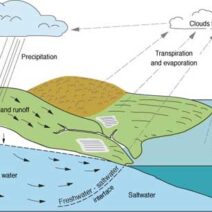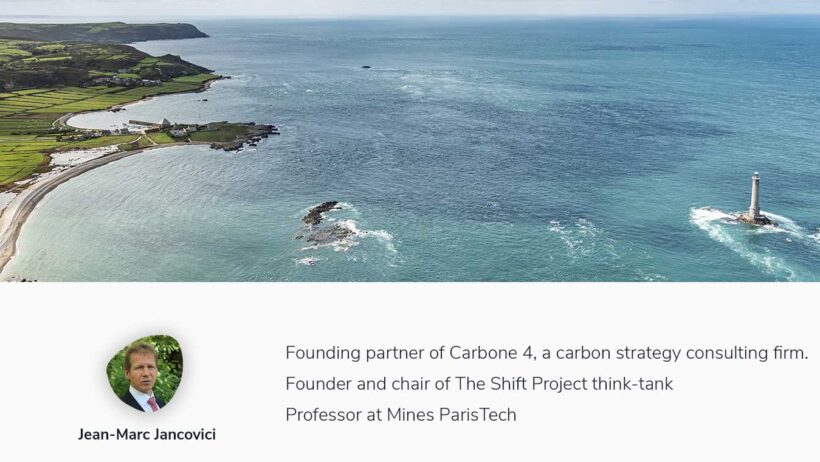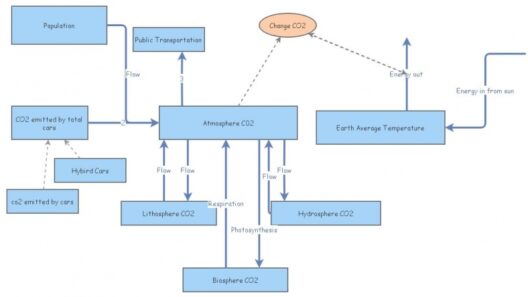The ubiquitous reliance on fossil fuels serves as the cornerstone of modern civilization. Yet, this dependence has precipitated a dire ecological crisis that is becoming increasingly untenable. What if one day, the wells ran dry? What if the earth demanded a reckoning for every molecule of CO2 released into the atmosphere? These questions, though somewhat playful, encapsulate the pressing concern surrounding fossil fuels as the engine that powers global warming.
The global economy is inextricably tied to fossil fuels—coal, oil, and natural gas. This triumvirate has underpinned industrial development, the energy sector, and transportation for over a century. However, as we teeter on the brink of irreversible climate change, it is paramount to dissect the mechanisms by which fossil fuels exacerbate global warming. Understanding this relationship could empower individuals and policymakers alike to forge a cleaner, more sustainable future.
Fossil fuels, born from ancient organic matter subjected to immense pressure and heat, release carbon dioxide (CO2) and methane (CH4) into the atmosphere when burned. These greenhouse gases trap heat, leading to the greenhouse effect—a phenomenon that lies at the heart of climate change. The Intergovernmental Panel on Climate Change (IPCC) has made it unequivocally clear that human-induced emissions from fossil fuels are a primary driver of global warming. Atmospheric CO2 concentrations have skyrocketed from about 280 parts per million in the pre-industrial era to over 400 parts per million today. Such levels are unprecedented in human history and compel a reevaluation of our energy sources.
The combustion of fossil fuels is not merely an abstract issue relegated to corporate boardrooms or academic journals; its ramifications are starkly tangible. Rising temperatures contribute to more frequent and severe weather events—hurricanes, droughts, and wildfires are becoming increasingly prevalent. These disasters wreak havoc on ecosystems, displace communities, and strain economic resources. Additionally, warming oceans contribute to coral bleaching, threatening marine biodiversity and the livelihoods of millions who depend on fisheries.
While the dire consequences of fossil fuel consumption are widely acknowledged, the challenge lies in transitioning to alternative energy sources. Renewable energy—solar, wind, hydroelectric, and geothermal—offers a promising solution. These technologies harness natural forces to generate electricity without emitting greenhouse gases. However, the transition is fraught with complexity. Health and safety regulations, political inertia, and entrenched fossil fuel interests often hinder progress. Transitioning entails not merely a shift in how we generate energy but a transformation in how we think about energy consumption.
As societies grapple with this transition, it is critical to consider the concept of a just transition. This idea emphasizes that the shift to renewable energy technologies must be equitable and inclusive. Workers in fossil fuel industries, often in communities that have relied on such jobs for generations, deserve support and opportunities as we move towards a greener economy. Reskilling programs, social safety nets, and community-engaged planning are essential components of this strategy. This ensures that no one is left behind in the quest for sustainability.
Furthermore, the role of policy cannot be overstated. Governments worldwide must implement robust climate policies that not only promote renewable energy adoption but also impose stringent regulations on fossil fuel extraction and consumption. Cap-and-trade systems, carbon taxes, and subsidies for green technologies can serve as powerful instruments for driving the transition. International cooperation is likewise crucial; climate change knows no borders, and effective action requires a coordinated global response.
Yet, one may ponder: can societal values shift sufficiently to embrace a low-carbon future? Data suggests that public opinion is increasingly in favor of climate action, especially among younger generations. Educating individuals about the dire consequences of inaction and the tangible benefits of renewable energy can catalyze grassroots movements advocating for policy changes. Communities that embrace sustainability can serve as beacons of hope, showcasing the possibilities of a future where clean energy reigns supreme.
In evaluating the environmental costs and benefits of renewable energy, it is also essential to acknowledge the ecological impact of sourcing materials for technologies like solar panels and wind turbines. Mining for lithium and rare earth elements demands scrutiny, as these processes can lead to significant land degradation and pollution. The holistic approach to energy transition calls for adopting circular economy principles, where materials are reused and recycled, minimizing waste and conserving natural resources.
The nexus between fossil fuels and global warming is clear, yet the solution does not lie in a singular path. Innovating energy technologies, rethinking consumption patterns, fostering equitable transitions, and enforcing stringent environmental policies are multifaceted steps requiring concerted global effort. As we challenge traditional paradigms of energy and consumption, the vision of a sustainable, low-carbon future begins to take shape.
As we ponder the future of energy, we must ask ourselves a provocative question: Can humanity rise to the occasion and transcend its addiction to fossil fuels? The challenge is monumental, yet the imperative for change is unequivocal. With collective action, unwavering determination, and a commitment to justice and equity, we have the potential to mitigate the impacts of global warming and create a more sustainable world for generations to come.








